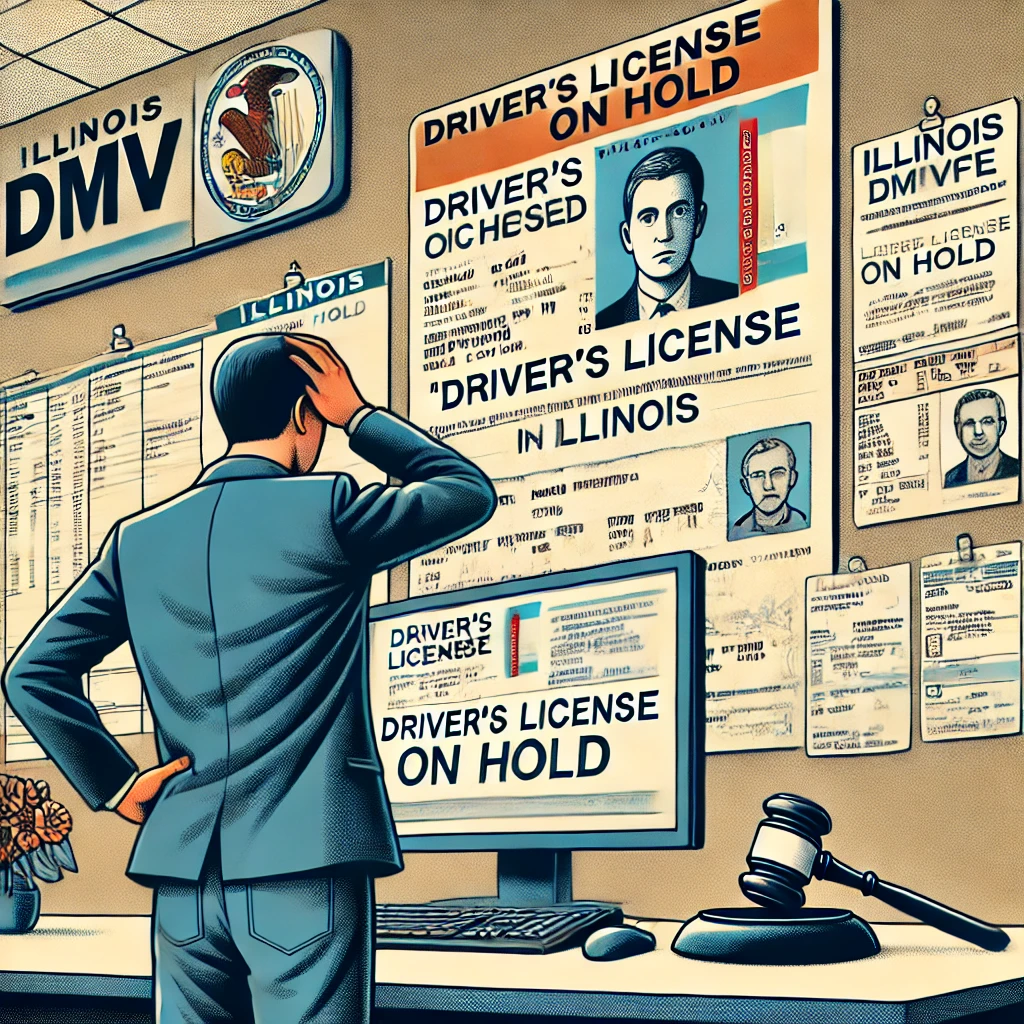 In Illinois, discovering that your driver's license is on hold can be both perplexing and frustrating. This hold signifies a restriction placed on your driving privileges by the Illinois Secretary of State, preventing you from renewing or obtaining a new license until the issue is resolved. Understanding the causes and remedies for a license hold is crucial to restoring your driving rights.
In Illinois, discovering that your driver's license is on hold can be both perplexing and frustrating. This hold signifies a restriction placed on your driving privileges by the Illinois Secretary of State, preventing you from renewing or obtaining a new license until the issue is resolved. Understanding the causes and remedies for a license hold is crucial to restoring your driving rights.
Common Reasons for a License Hold in Illinois
Several circumstances can lead to the Illinois Secretary of State placing a hold on your driver's license:
- DUI Convictions: If you're convicted of Driving Under the Influence (DUI) in Illinois, your driving privileges will be revoked, resulting in a license hold.
- Failure to Appear in Court: Missing a scheduled court appearance for a traffic summons can trigger a hold on your license.
- Unpaid Fines or Parking Violations: Neglecting to pay traffic-related fines or parking tickets may lead to a suspension and subsequent hold on your license.
- Unpaid Child Support: Failure to comply with court-ordered child support payments can result in a license hold.
Implications of a License Hold
A hold on your Illinois driver's license has significant consequences:
- Inability to Renew or Obtain a License: With a hold in place, you cannot renew your current license or secure a new one in Illinois or any other state, as the hold is recorded in the National Driver Register.
- Impact on Daily Life: Losing your driving privileges can affect your ability to commute to work, attend school, or fulfill other essential responsibilities.
Steps to Remove a License Hold
Addressing the hold promptly is essential to reinstate your driving privileges. Here are the steps to follow:
1. Identify the Cause: Determine the specific reason for the hold by reviewing any correspondence from the Illinois Secretary of State or by obtaining your driving record.
2. Resolve the Underlying Issue: Depending on the cause, this may involve:
- Paying Outstanding Fines or Tickets: Settle any unpaid fines or tickets that led to the hold.
- Complying with Court Orders: Address any missed court appearances or fulfill child support obligations.
- Completing Required Programs: For DUI-related holds, complete mandated alcohol or drug education and treatment programs.
3. Submit Documentation: Provide proof of compliance to the Illinois Secretary of State, which may include:
- Completion certificates from treatment programs.
- Proof of payment for fines or tickets.
- Court documents confirming compliance with orders.
4. Request a Hearing (if necessary): Some situations may require a formal or informal hearing with the Secretary of State to assess your eligibility for reinstatement.
5. Pay Reinstatement Fees: A reinstatement fee is typically required to lift the hold and restore your driving privileges.
Seeking Legal Assistance
Navigating the process of removing a license hold can be complex and time-consuming. Consulting with an experienced attorney who specializes in driver's license reinstatement can provide valuable guidance and increase the likelihood of a successful outcome. They can assist in preparing necessary documentation, represent you in hearings, and ensure all legal requirements are met.
In conclusion, a hold on your Illinois driver's license is a serious matter that requires immediate attention. By understanding the reasons behind the hold and taking appropriate steps to address the underlying issues, you can work towards reinstating your driving privileges and resuming your daily activities without interruption.

